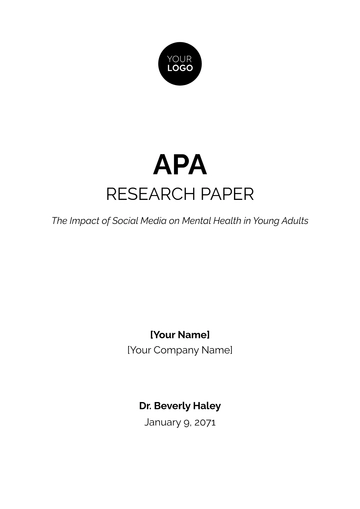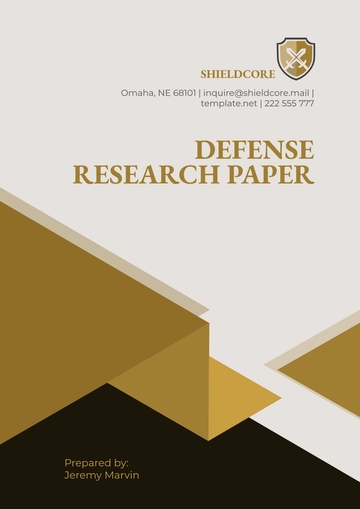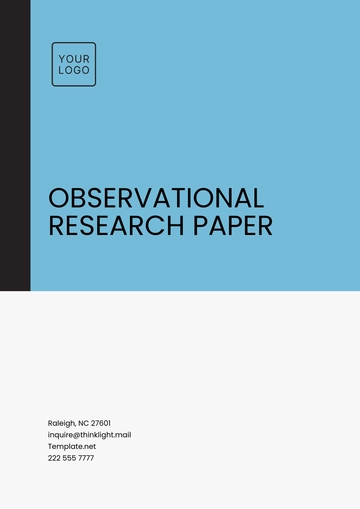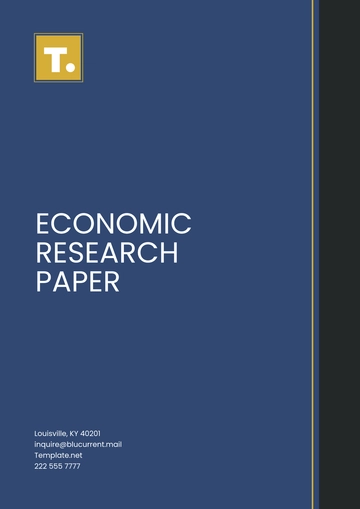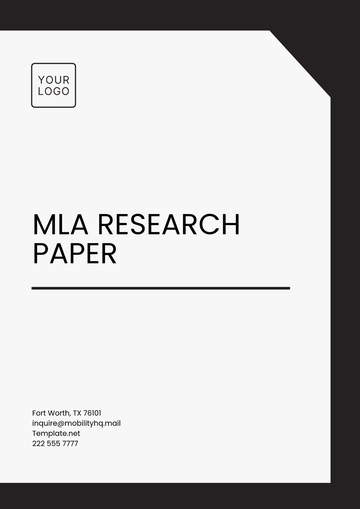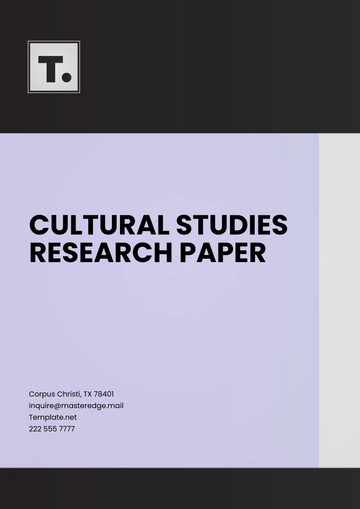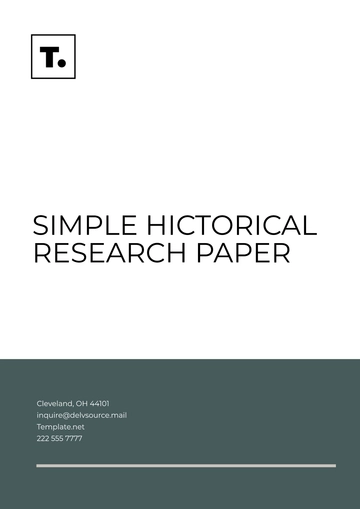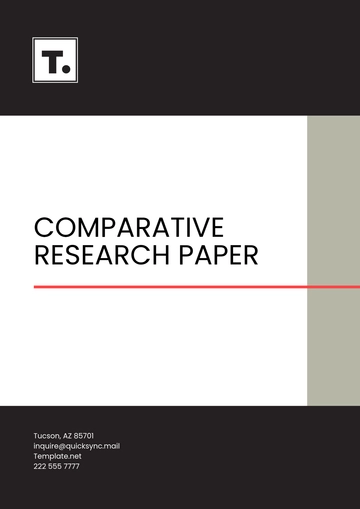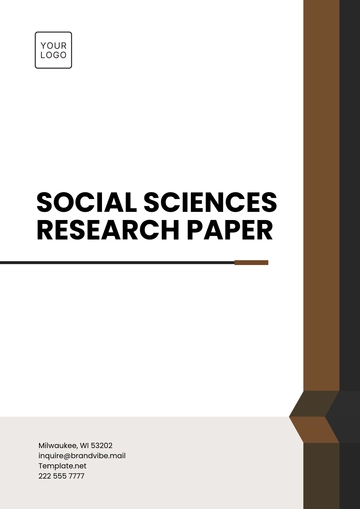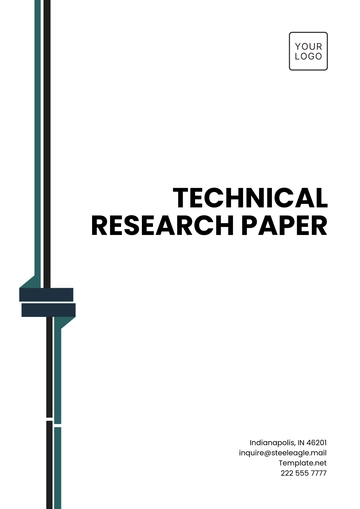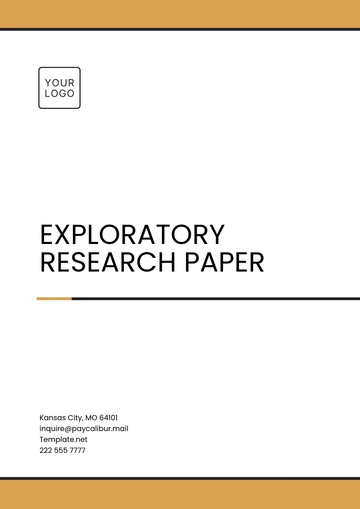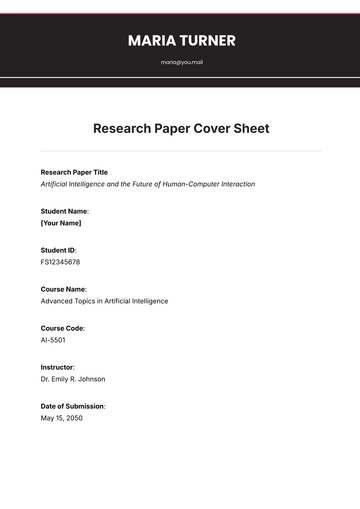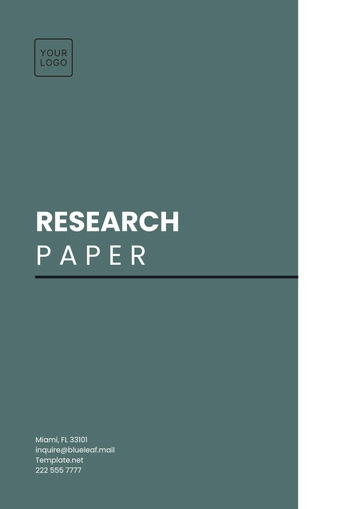Free Interdisciplinary Literature Research Paper
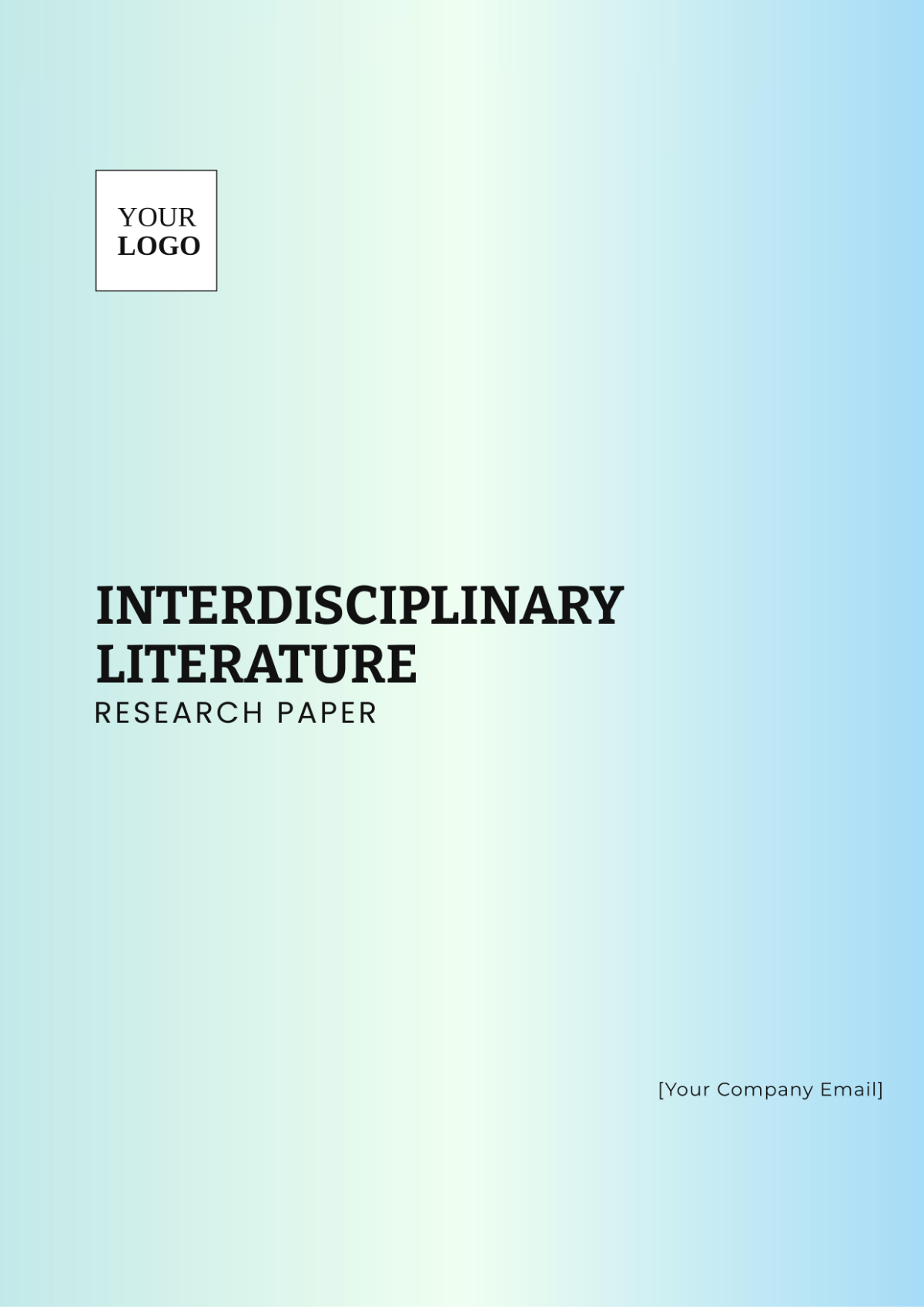
Researcher: [Your Name]
Date: [Date]
I. Introduction
An Interdisciplinary Literature Research Paper is a scholarly endeavor that combines research, theories, and methodologies from multiple academic disciplines to address complex questions or topics. The purpose of such a paper is to provide a comprehensive understanding that transcends the limitations of a single-discipline approach. This paper will explore the integration of diverse fields to examine multifaceted issues, illustrating how interdisciplinary research can lead to more robust and inclusive academic insights.
II. Literature Review
The literature review section synthesizes key research findings from relevant disciplines. By drawing upon varied sources, researchers can develop a more nuanced understanding of the topic at hand.
Key Themes in Interdisciplinary Research:
Integration of Theoretical Frameworks: Combining theories from sociology, psychology, and economics can offer more comprehensive insights into human behavior.
Methodological Approaches: Utilizing both qualitative and quantitative methods from different disciplines can enhance the robustness of research findings.
Synthesizing Findings: Cross-disciplinary synthesis can uncover new patterns that might be overlooked within a single discipline.
III. Theoretical Framework
This section discusses the theoretical frameworks that underpin the interdisciplinary research process. The integration of diverse theoretical perspectives can provide a richer analytical lens.
Examples of Theoretical Integration:
Discipline | Theory | Contribution |
|---|---|---|
Sociology | Social Constructionism | Provides insights into how social phenomena are constructed. |
Psychology | Cognitive Dissonance Theory | Helps understand the mental conflict experienced when beliefs or behaviors are contradictory. |
Economics | Rational Choice Theory | Offers a framework to understand decision-making processes. |
IV. Methodology
The methodology section outlines the research design and methods employed to integrate diverse disciplinary approaches. It is essential to select methods that complement each other and align with the research objectives.
Steps in Methodological Integration:
Identify Relevant Disciplines: Determine the fields of study most pertinent to the research question.
Select Appropriate Methods: Choose qualitative, quantitative, or mixed-method approaches suitable for each discipline.
Data Collection: Gather data using methods that can capture the complexities of the research question.
Data Analysis: Analyze data using interdisciplinary analytic techniques.
V. Discussion
The discussion section interprets the findings in the context of the integrated theoretical frameworks and methodologies. This section highlights the added value of an interdisciplinary approach in addressing the research question.
Key Points of Discussion:
Enhanced Understanding: How the integrated approach provides a more comprehensive understanding of the complex issue.
Unexpected Insights: New insights or patterns that emerged from the interdisciplinary synthesis.
Challenges and Limitations: Practical and theoretical challenges encountered during the research process.
VI. Conclusion
This concluding section summarizes the key findings, emphasizes the significance of the interdisciplinary approach, and suggests potential directions for future research.
Major Takeaways:
The integration of theories, methods, and findings from multiple disciplines can provide more holistic insights into complex issues.
Interdisciplinary research fosters innovation and can reveal new patterns and solutions that single-discipline studies might miss.
Future research should continue to explore and refine interdisciplinary methodologies to address evolving academic and societal challenges.
VII. References
Becker, G. S. (2050). The economic approach to human behavior. University of Chicago Press.
Festinger, L. (2057). A theory of cognitive dissonance. Stanford University Press.
Giddens, A. (2084). The constitution of society: Outline of the theory of structuration. University of California Press.
- 100% Customizable, free editor
- Access 1 Million+ Templates, photo’s & graphics
- Download or share as a template
- Click and replace photos, graphics, text, backgrounds
- Resize, crop, AI write & more
- Access advanced editor
Explore diverse fields with Template.net's Interdisciplinary Literature Research Paper Template. Fully customizable and editable, this template helps you seamlessly integrate and present research across multiple disciplines. Editable in our Ai Editor Tool, it offers the flexibility to modify each section, ensuring your interdisciplinary study is both well-organized and professionally presented.



